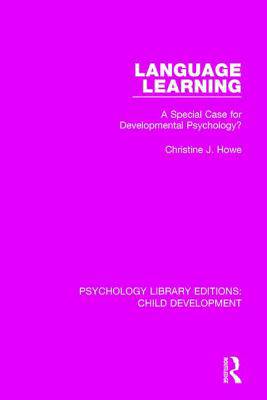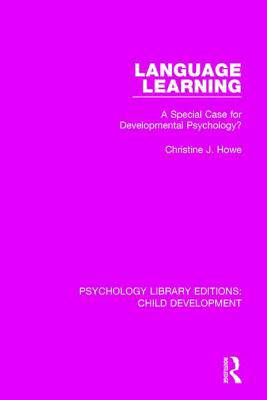
- Retrait gratuit dans votre magasin Club
- 7.000.000 titres dans notre catalogue
- Payer en toute sécurité
- Toujours un magasin près de chez vous
- Retrait gratuit dans votre magasin Club
- 7.000.0000 titres dans notre catalogue
- Payer en toute sécurité
- Toujours un magasin près de chez vous
Description
Originally published in 1993, the starting place for this book is the notion, current in the literature for around 30 years at that time, that children could not learn their native language without substantial innate knowledge of its grammatical structure. It is argued that the notion is as problematic for contemporary theories of development as it was for theories of the past. Accepting this, the book attempts an in-depth study of the notions credibility.
Central to the book's argument is the conclusion that the innateness hypothesis runs into two major problems. Firstly, its proponents are too ready to treat children as embryonic linguists, concerned with the representation of sentences as an end in itself. A more realistic approach would be to regard children as communication engineers, storing sentences to optimize the production and retrieval of meaning. Secondly, even when the communication analogy is adopted, it is glibly assumed that the meanings children impute will be the ones adults intend. One of the book's major contentions is that a careful reading of contemporary research suggests that the meanings may differ considerably.
Identifying such problems, the book considers how development should proceed, given learning along communication lines and a more plausible analysis of meaning. It makes detailed predictions about what would be anticipated given no innate knowledge of grammar. Focusing on English but giving full acknowledgement to cross-linguistic research, it concludes that the predictions are consistent with both the known timescale of learning and the established facts about children's knowledge. Thus the book aspires to a serious challenge to the innateness hypothesis via, as its final chapter will argue, a model which is much more reassuring to psychological theory.
Spécifications
Parties prenantes
- Auteur(s) :
- Editeur:
Contenu
- Nombre de pages :
- 234
- Langue:
- Anglais
- Collection :
- Tome:
- n° 3
Caractéristiques
- EAN:
- 9781138064287
- Date de parution :
- 07-12-17
- Format:
- Livre relié
- Format numérique:
- Genaaid
- Dimensions :
- 156 mm x 233 mm
- Poids :
- 589 g

Les avis
Nous publions uniquement les avis qui respectent les conditions requises. Consultez nos conditions pour les avis.






